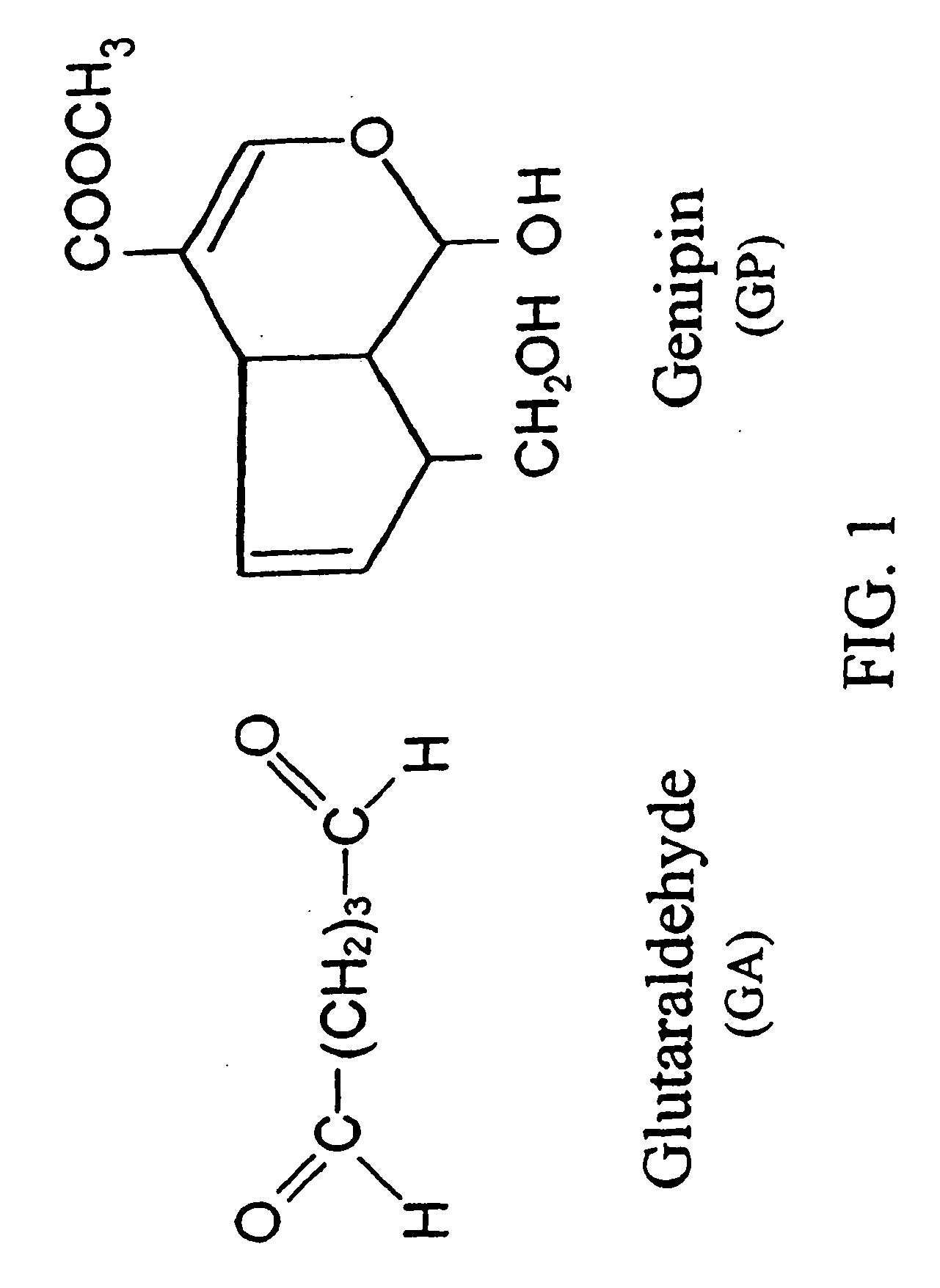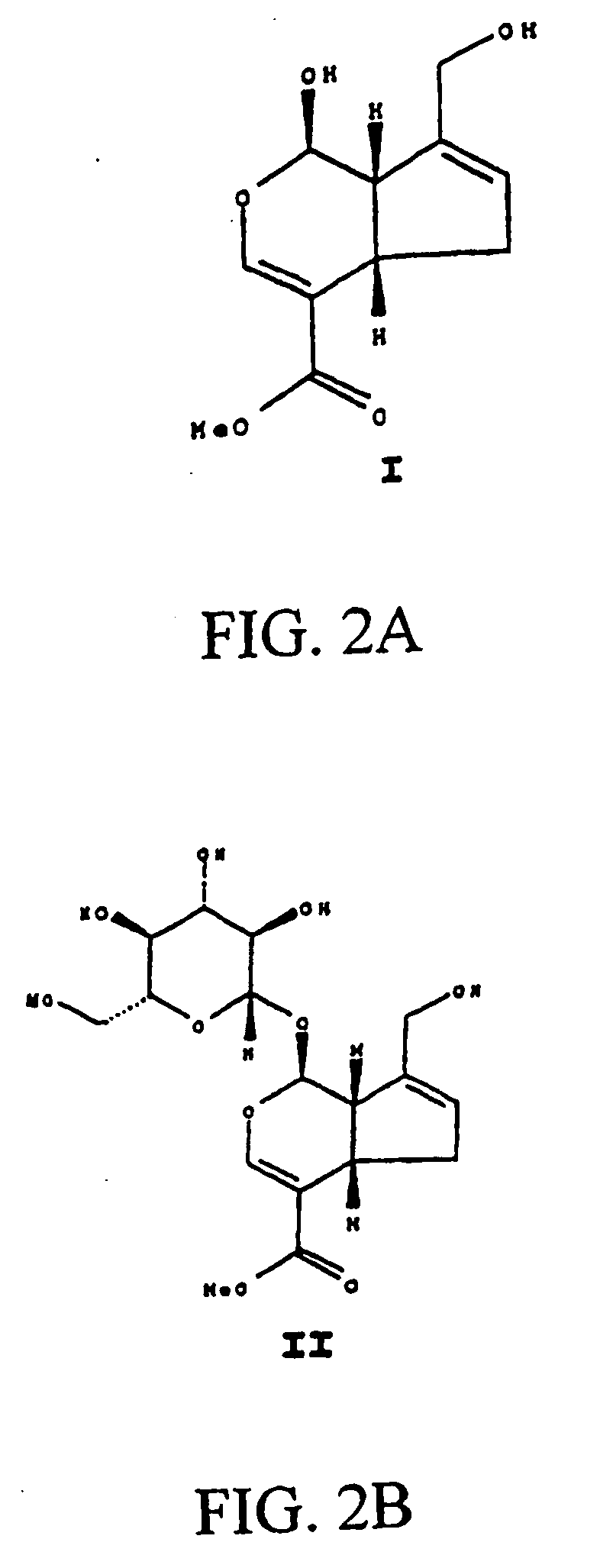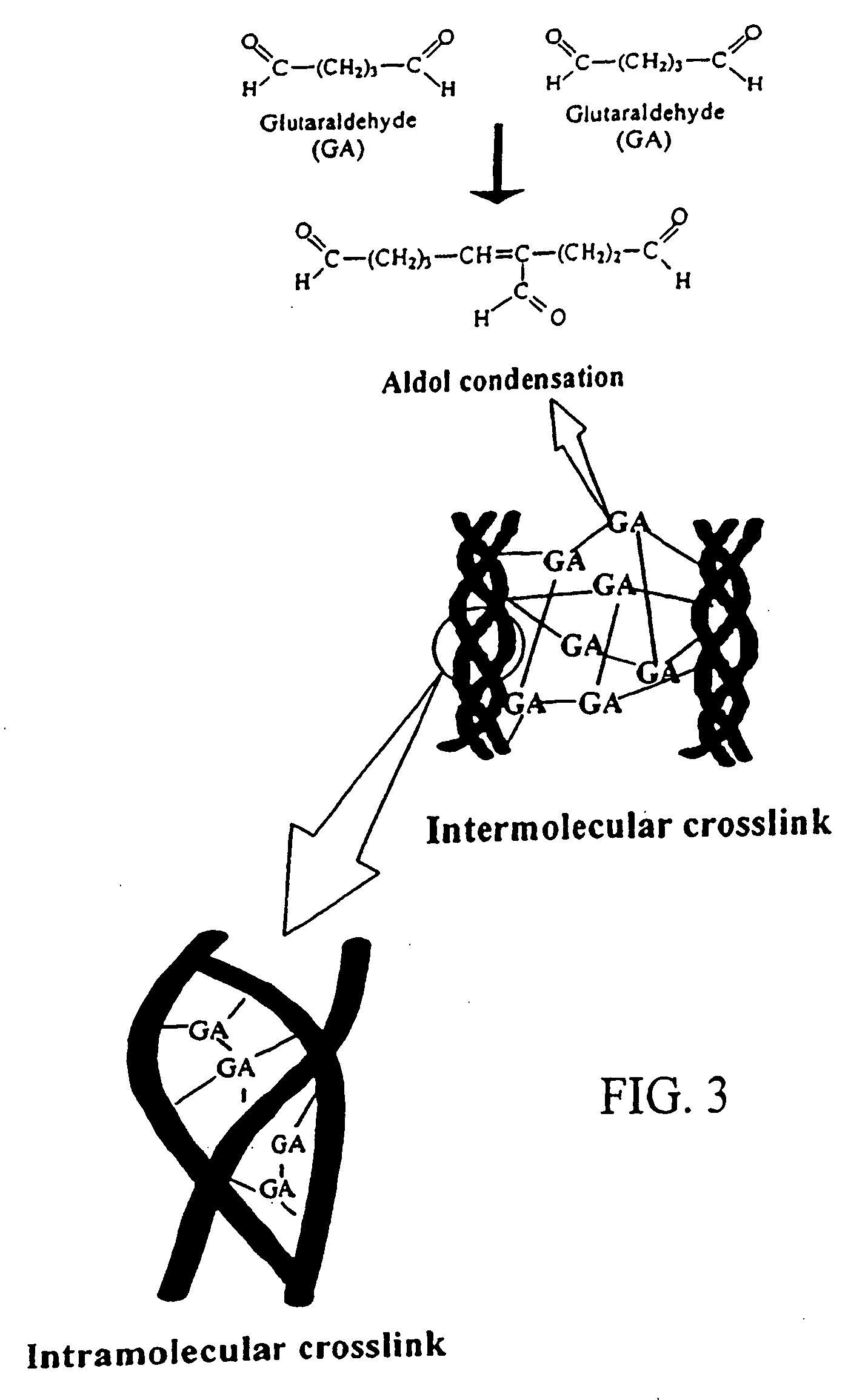Drug-eluting biodegradable stent
a biodegradable stent, drug-eluting technology, applied in the direction of prosthesis, surgery, coating, etc., can solve the problems of easy degradation of collagenase, low tensile strength, and impair the biocompatibility of biological tissu
- Summary
- Abstract
- Description
- Claims
- Application Information
AI Technical Summary
Benefits of technology
Problems solved by technology
Method used
Image
Examples
example # 1
EXAMPLE #1
[0193] Dissolve chitosan powder in acetic acid at about pH 4. Chitosan (MW: about 70,000) was purchased from Fluka Chemical Co. of Switzerland. The deacetylation degree of the chitosan used was approximately 85%. Subsequently, adjust the chitosan solution to approximately pH 5.5 (right before it becomes gelled) with NaOH. Add in drug(s) of interest into the chitosan solution. While loading the drug-containing chitosan onto a stent, adjust the environment to pH 7 with NaOH to solidify the chitosan onto the stent. In another embodiment, the drug-containing chitosan can be configured to become a stent or a multiple-layer stent by exposing to an environment of pH 7 to solidify the chitosan stent. The process can be accomplished via a continuous assembly line step by providing gradually increasing pH zones as the device passes by. It is further treated with a crosslinking agent, for example genipin to enhance the biodurability and biocompatibility. Note that the chemic...
example # 2
EXAMPLE #2
Chitosan Stent
[0195] Dissolve chitosan powder in acetic acid at about pH 4 by dispersing 3 grams powder in 50 ml of water containing 0.5 wt % acetic acid. Chitosan (MW: about 70,000) was purchased from Fluka Chemical Co. (Buchs, Switzerland). The chitosan polymer solution was prepared by mechanical stirring at about 600 rpm for about 3 hours until all powder is dissolved. Subsequently, adjust the chitosan solution to approximately pH 5.5 (right before it becomes gelled) with NaOH. Add in at least one bioactive agent of interest into the chitosan solution. While loading the bioactive agent-containing chitosan onto a mold, adjust the environment to pH 7 with NaOH to solidify the chitosan to make a stent. In one example, the mold is a helically bendable hollow mold (such as the one made of silicone or polyurethane-silicone copolymer). During the solidification stage, the mold is promptly bent helically or spirally. After the chitosan is fully solidified, remove the mold to o...
example # 3
EXAMPLE #3
Multiple Layer Stent
[0206] Following the steps for making solidifiable chitosan solution or other biological solution loaded with a first bioactive agent in the previous example, the solution is cast to make a chitosan film onto the inner surface of the cylindrical mold. During the solidification stage, the mold is rotated at a desired speed, say, several hundred to several thousand rpm. After the first film is solidified, a second solidifiable chitosan solution or other biological solution loaded with a second bioactive agent can be added on top of the first film and solidified thereafter. By repeating the aforementioned processes, a pre-product with multiple layers of biological material is made. In one embodiment, between each film casting step, the pre-product may be further crosslinked. The cylindrical film with multiple layer and multiple bioactive agents is thereafter cut by a knife in a helical fashion to make a spiral pre-product or a double spiral pre-product. W...
PUM
| Property | Measurement | Unit |
|---|---|---|
| Fraction | aaaaa | aaaaa |
| Biological properties | aaaaa | aaaaa |
| Biodegradability | aaaaa | aaaaa |
Abstract
Description
Claims
Application Information
 Login to View More
Login to View More - R&D
- Intellectual Property
- Life Sciences
- Materials
- Tech Scout
- Unparalleled Data Quality
- Higher Quality Content
- 60% Fewer Hallucinations
Browse by: Latest US Patents, China's latest patents, Technical Efficacy Thesaurus, Application Domain, Technology Topic, Popular Technical Reports.
© 2025 PatSnap. All rights reserved.Legal|Privacy policy|Modern Slavery Act Transparency Statement|Sitemap|About US| Contact US: help@patsnap.com



